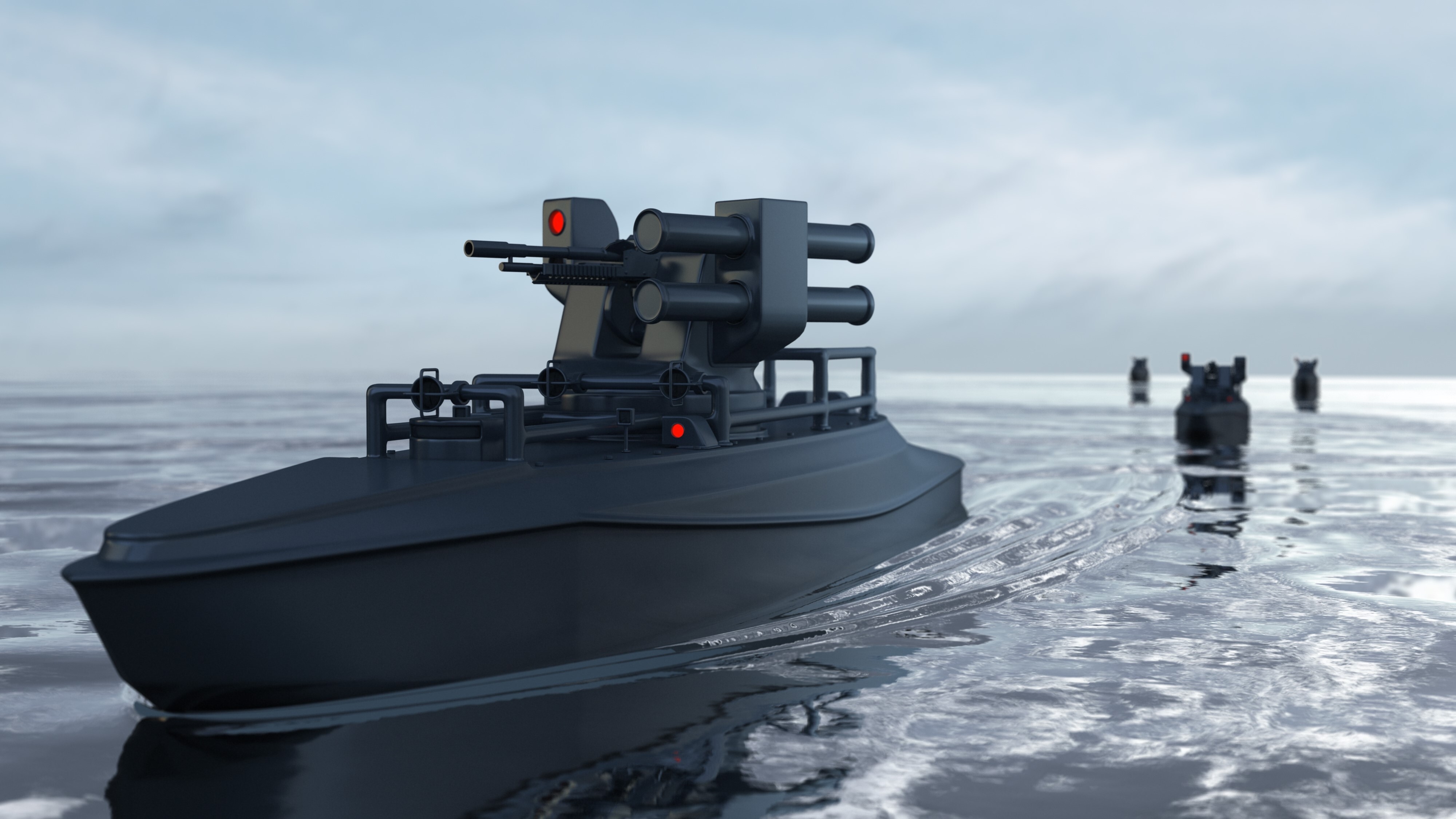
Following a spate of undersea cable disruptions in the recent weeks, with the most recent happening in November, NATO is drawing up plans for a fleet of naval surveillance drones to monitor the major bodies of water surrounding Europe — specifically, the Baltic Sea and the Mediterranean.
French Admiral Pierre Vandier, the current Supreme Allied Commander in charge of evolving NATO forces and capabilities, told Defense News that doing this is similar to having CCTV cameras mounted on street lights to help monitor urban trouble spots and record evidence. “The technology is there to make this street lighting with USVs,” says Vandier. He also added that the deployment of this system would allow the alliance to “see and monitor daily its environment.”
USVs, or unmanned surface vessels, aren’t new technology. The U.S. Navy’s Fifth Fleet, which operates in and around the Middle East, has been working on this technology since 2021. It even has its own unit—Task Force 59 (TF 59)—whose primary role is to integrate these drones and the AI behind them into the Fleet’s operations. More recently, the U.S. Navy established TF 59.1, a smaller group within the unit that’s tasked with testing and upgrading systems provided by defense contractors to ensure that they’re ready for operational deployment.
NATO officials believe they can use similar platforms that the Fifth Fleet uses, which will simplify and speed up USV deployment. However, the Admiral's office still needs to do a lot of things, especially as there are no specific details yet about the planned seaborne monitoring and reconnaissance system. “There is no name, just USV Fleet,” says Vandier. But because it will probably use an already existing system, it has set June 2025 as the launch date of the drone surveillance fleet—just in time for the next NATO Summit.
The surface fleet is just the beginning for NATO, though, as Vandier also plans to deploy underwater USVs. This is especially crucial as Russia, NATO’s current primary adversary, is reportedly planning strategies to disrupt the internet, GPS, and communications systems to gain an advantage if and when armed conflict erupts.







